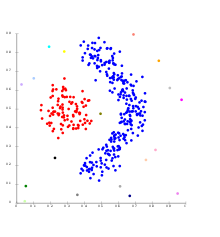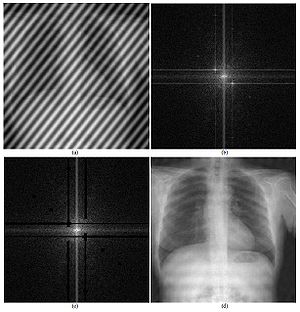Information engineering
Information engineering is the engineering discipline that deals with the generation, distribution, analysis, and use of information, data, and knowledge in systems.[1][2][3][4][5] The field first became identifiable in the early 21st century.

The components of information engineering include more theoretical fields such as

The field of information engineering is based heavily on mathematics, particularly
Information engineers often[
History
In the 1980s/1990s term information engineering referred to an area of software engineering which has come to be known as data engineering in the 2010s/2020s.[11]
Elements
Machine learning and statistics
Machine learning is the field that involves the use of statistical and
Subfields of machine learning include
Causal inference is another related component of information engineering.
Control theory
Control theory refers to the control of (
Subfields of control theory include classical control, optimal control, and nonlinear control.
Signal processing
Signal processing refers to the generation, analysis and use of

Information theory
Information theory studies the analysis, transmission, and storage of information. Major subfields of information theory include coding and data compression.[15]
Computer vision
Computer vision is the field that deals with getting computers to understand image and video data at a high level.[16]
Natural language processing
Natural language processing deals with getting computers to understand human (natural) languages at a high level. This usually means text, but also often includes speech processing and recognition.[17]
Bioinformatics
Bioinformatics is the field that deals with the analysis, processing, and use of
Cheminformatics
Cheminformatics is the field that deals with the analysis, processing, and use of
Robotics
Robotics in information engineering focuses mainly on the
Tools
In the past some areas in information engineering such as signal processing used
See also
- Aerospace engineering
- Chemical engineering
- Civil engineering
- Engineering informatics
- Internet of things
- List of engineering branches
- Mechanical engineering
- Statistics
References
- ^ a b "2009 lecture | Past Lectures | BCS/IET Turing lecture | Events | BCS – The Chartered Institute for IT". www.bcs.org. Retrieved 11 October 2018.
- ^ a b Brady, Michael (2009). "Information Engineering & its future". Institution of Engineering and Technology, Turing Lecture. Retrieved 4 October 2018.
- ^ Roberts, Stephen. "Introduction to Information Engineering" (PDF). Oxford Information Engineering. Retrieved 4 October 2018.
- ^ "Department of Information Engineering, CUHK". www.ie.cuhk.edu.hk. Retrieved 3 October 2018.
- ^ a b "Information Engineering | Department of Engineering". www.eng.cam.ac.uk. Retrieved 3 October 2018.
- ^ "Information Engineering Main/Home Page". www.robots.ox.ac.uk. Retrieved 3 October 2018.
- ^ "Information Engineering". warwick.ac.uk. Retrieved 3 October 2018.
- ^ "Academic Partners and Affiliates 2017/2018 – The IET". www.theiet.org. Archived from the original on 4 October 2018. Retrieved 3 October 2018.
- ^ "Electronic and Information Engineering – Imperial College London". Times Higher Education (THE). Retrieved 3 October 2018.
- ^ "Accreditation of the MEng | CUED undergraduate teaching". teaching.eng.cam.ac.uk. Retrieved 3 October 2018.
- ^ Black, Nathan (15 January 2020). "What is Data Engineering and Why Is It So Important?". QuantHub. Retrieved 31 July 2022.
- ISBN 978-0387310732.
- ISBN 978-1118170519.
- ISBN 978-0137027415.
- ISBN 978-0471241959.
- ISBN 978-0128092842.
- ISBN 978-0131873216.
- ISBN 978-0199651566.
- ISBN 978-1402062902.
- ^ ISBN 978-0262015356.
- ^ ISBN 978-1107031159.
- ISBN 978-0262201629.
- ^ Barker, Colin. "How the GPU became the heart of AI and machine learning | ZDNet". ZDNet. Retrieved 3 October 2018.
- ^ Kobielus, James. "Powering artificial intelligence: The explosion of new AI hardware accelerators". InfoWorld. Retrieved 3 October 2018.
- ISBN 978-0128100400.
- ISBN 978-3319964232.
- ISBN 978-1627059138.

